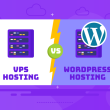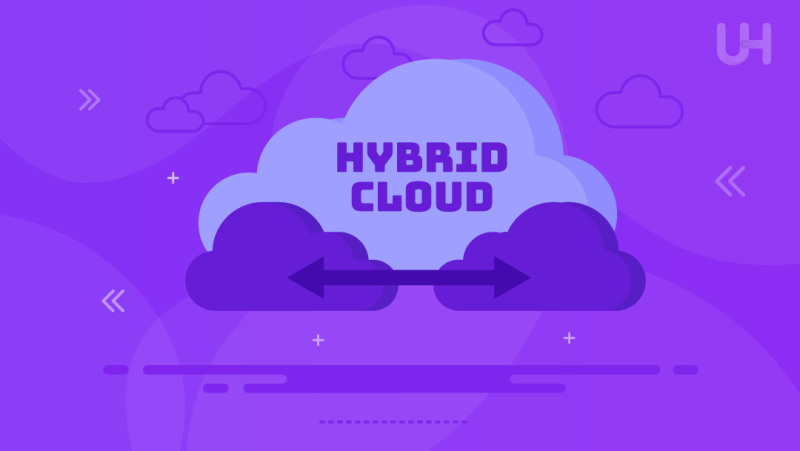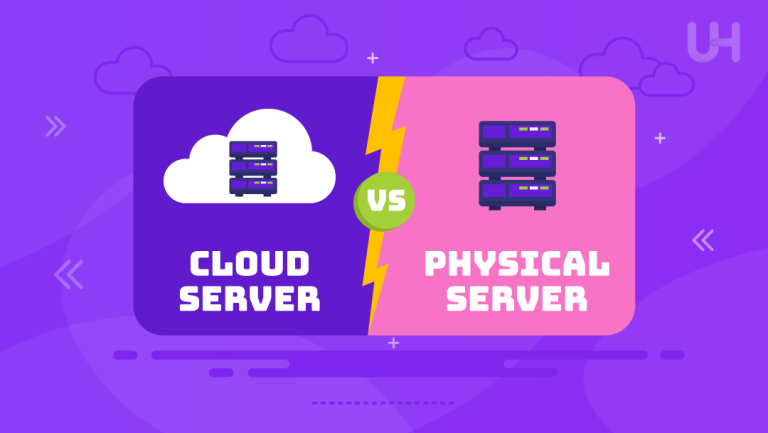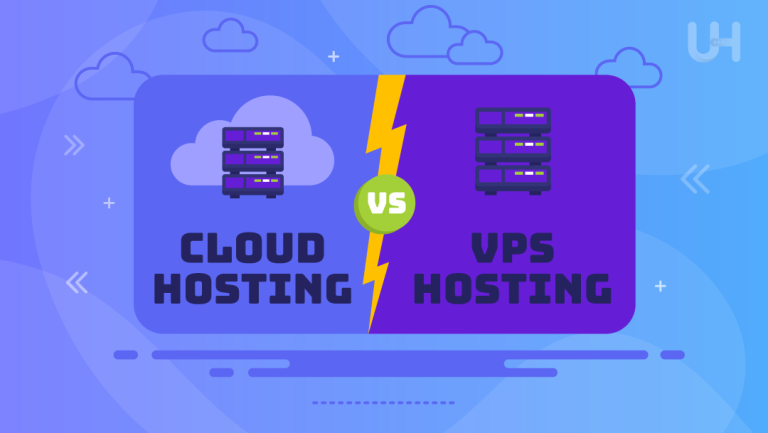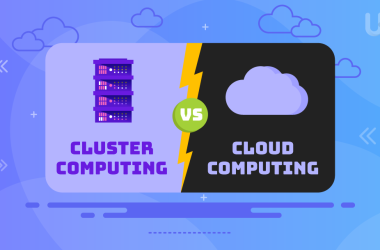The increased drive for modernizing IT setups has stoked organizations’ interest in hybrid cloud solutions. Hybrid cloud assimilates a few of the best features of public and private cloud environments in ways that offer much-needed flexibility, scalability, and security matched by a few choices. Now, businesses are leaning toward Hybrid Cloud Architecture since it lets them maximize their resources, optimize workload, and remain competitive in the digital-first world.
In this article, we will explain the term hybrid cloud, the concept, and its feature set. We will then explore the diverse environments in which hybrid clouds operate and discuss the key benefits of adopting a hybrid cloud strategy.
What is Hybrid Cloud?
Hybrid cloud computing is an environment that combines on-premises infrastructure-a private cloud-with public cloud services. It basically enables continuous data, applications, and workload sharing between both environments, thus enabling a business to scale up operations while keeping key information in control. In short, it gives flexibility to an organization to decide where data must be stored and where the applications are to be executed based on the business requirements.
The concept of a hybrid cloud model is engineered to promise the best of both worlds. It leverages scalability and cost efficiency on the public clouds, while the private cloud maintains security, compliance, and control. This is one of the key reasons hybrid clouds have emerged as one of the most high-demand solutions for businesses that want the perfect blend of performance and security.
How Does the Hybrid Cloud Work?
Hybrid cloud computing allows for the easy transfer of data and application workloads across an on-premise infrastructure and public cloud services. This is very important because organizations can keep sensitive workloads on private cloud servers, such as a dedicated storage server, for control and security. At the same time, less critical activities can shift to the public cloud for scalability and cost-effectiveness. Dynamic workload shifting within the cloud environments forces businesses to optimize IT infrastructure for improved performance and save enormous usage costs.
The functionalities central to the hybrid cloud’s working include cloud orchestration and automation tools. These tools will perfectly integrate public and private cloud environments, enabling a business to manage the infrastructures as one ecosystem. The hybrid cloud deployments also include VPNs or Application Programming Interfaces that will ensure secure communications between the various cloud environments.
Key Features of Hybrid Cloud
Hybrid cloud allows versatile and dynamic components that are well-suited to fit a wide variety of business needs. This includes a number of key features that distinguish it from traditional IT infrastructures and fully public or private cloud environments.
- Dynamic Workloads: Hybrid clouds can also let an organization manage dynamic workloads more efficiently. During spikes in demand, an organization can scale resources with a public cloud on the spot without overloading their private infrastructure.
- Big Data Processing: Big data requires immense computing power to process large volumes of data. It, therefore, allows businesses to process big data in the public cloud while sensitive data is secured in the private cloud.
- Make Change at Your Own Pace: The most important advantage of a hybrid cloud is flexibility. The organization may move into the cloud at its own pace rather than in sudden jumps.
- Backup and Disaster Recovery Flexibility: Hybrid cloud provides enterprises with more reliable and cost-efficient means of handling data backups and disaster recovery. By spreading data across private and public cloud environments, organizations ensure critical data is always recoverable, even in a system failure.
Environments in Hybrid Clouds

These exist as different hybrid cloud environments, each set up for particular reasons, offering unique advantages to the infrastructure. Each contributes to providing flexibility and efficiency in delivering a hybrid cloud as the perfect solution for any business.
Public Cloud
Third-party cloud providers provide public clouds. The well-known public cloud vendors include Amazon Web Services, Microsoft Azure, and Google Cloud. These clouds are scalable, flexible, and economical since businesses pay only for resources utilized. Public clouds will be ideal for variable workloads like web applications or large-scale data processing.
On-premises Private Cloud
The on-premises private cloud is an environment in the cloud that a company hosts on its infrastructure. It extends complete control over data and applications to organizations, thus finding wide application in businesses under stringent regulatory or security compliance. Although these may be more costly to maintain, sensitive data can rest within the company’s firewall.
Enhance Your Hybrid Cloud with Reliable Hosting!
Looking for the flexibility and scalability of hybrid cloud solutions for your business? With UltaHost’s Cloud VPS Hosting, you can seamlessly integrate your public and private cloud environments while enjoying the speed, security, and control of a VPS.
Hosted Private Cloud
A hosted private cloud is maintained by a third-party provider but used by one particular organization. This model offers the merits of private clouds, like security and compliance, without having the company maintain its infrastructure. Hosted private clouds are ideal for businesses that require features like those of a private cloud, such as secure data management for applications like hosted CRM systems, but would rather offload the complexity of maintaining such to someone else.
On-premises (Legacy)
Other organizations still have near-term reliance on on-premise legacy infrastructures for applications that are better not moved to the cloud. A hybrid cloud enables companies to bridge legacy systems with their more modern cloud environments, ensuring incremental modernization in line with operations.
Hybrid Cloud Benefits
The hybrid cloud model has much to offer an organization and can be very tempting for corporations seeking flexibility and economy in their information technology strategy. Among the key benefits that the hybrid cloud offers are the following:
Cost Efficiency
Running non-critical workloads on the public cloud will translate to significant cost savings for the enterprise. Rather than buying expensive hardware to run infrequent workloads, an enterprise can hook into cloud storage services as and when required.
Scalability and Flexibility
Hybrid clouds allow scalable resources depending on demand, which is crucial for companies with fluctuating workloads. A business can scale up using the public cloud very quickly, leveraging solutions like cloud storage VPS, and then, when demand changes, scale back down without having to keep unused resources on account.
Enhanced Security and Compliance
While the public cloud offers flexibility and cost savings, it’s not necessarily suitable for storing sensitive data at all times. They allow businesses to retain sensitive data within a private cloud environment, where it must be protected. In contrast, the use of the public cloud can remain open for less critical purposes.
Business Continuity and Disaster Recovery
Offering hybrid redundant systems across private and public cloud environments makes disaster recovery much easier. In the event of failure within the private cloud, the workload can be quickly transferred to the public cloud, ensuring minimal business disruption.
Greater Innovation and Agility
The hybrid cloud integrates private and public clouds, enabling faster business innovation. A company can test its new applications, services, and technologies in the cloud while its core infrastructure remains on-premise.
Conclusion
In today’s fast-paced digital movement, organizations should be agile, flexible, and ready to scale at any moment. Hybrid cloud addresses the perfect solution for companies trying to balance efficiency in costs, security, and scalability effectively. By integrating public and private cloud environments into one comprehensively scalable environment, businesses are able to tailor their infrastructure to their unique needs. No wonder hybrid cloud-powered by robust features, varied environments, and Quantum-edge benefits driven as a key innovation and growth factor in the modern IT world.
Adopting a hybrid cloud approach with reliable cloud-based web hosting from UltaHost can elevate your business’s performance and security. Embrace the future of IT infrastructure and discover how we can help you.
FAQ
What businesses benefit most from a hybrid cloud?
A hybrid cloud is ideal for businesses with fluctuating workloads or strict compliance needs. It balances sensitive data with cost-effective resources.
Can hybrid cloud help with regulatory compliance?
Yes, it allows businesses to keep sensitive data in private clouds while using public clouds for less critical operations, aiding compliance.
How can organizations ensure data security in hybrid clouds?
Organizations can enhance security through encryption, audits, access controls, and leveraging security features from cloud providers.
Is it easy to migrate applications between clouds?
Yes, with the right tools, organizations can easily migrate applications between public and private clouds to optimize performance.
What role do APIs play in hybrid clouds?
APIs enable communication between cloud environments, allowing seamless integration and management of applications and services.
Are hybrid clouds cost-effective for small businesses?
Yes, they offer flexibility in scaling resources and reduce the need for upfront hardware costs, making them budget-friendly.
How does the hybrid cloud support disaster recovery?
A hybrid cloud enhances disaster recovery by providing redundant resources across both clouds, enabling quick restoration of operations.




